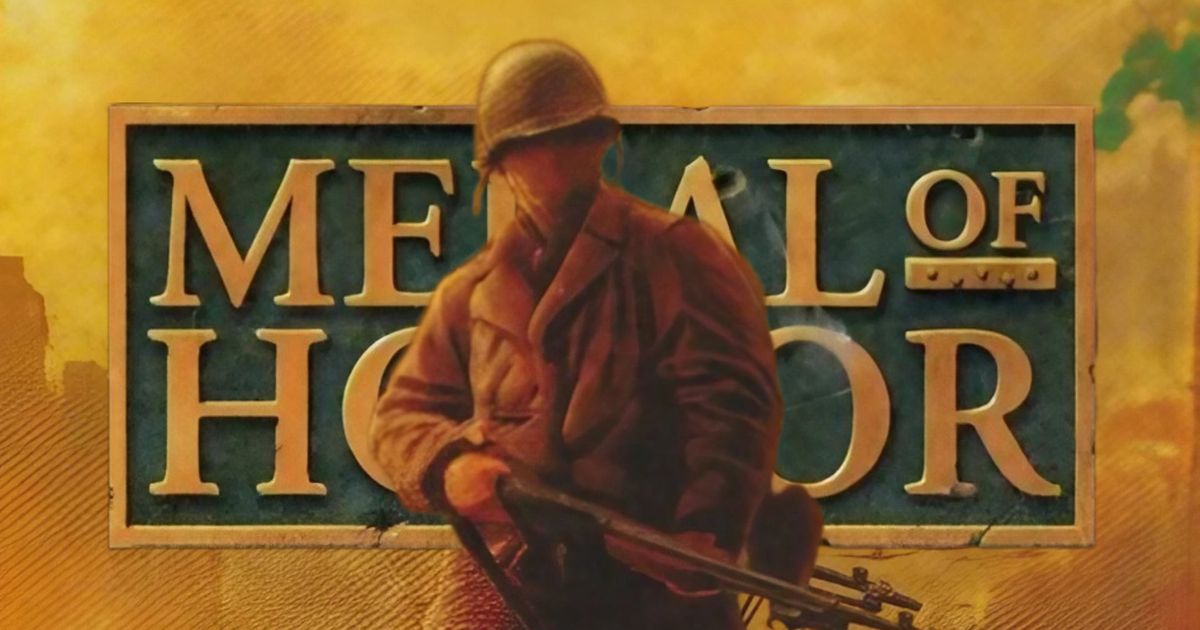We all hate Nazis. Well, most of us do; the good ones do. Growing up, World War II was the genre hotness. Saving Private Ryan taught us the horrors of war, Band of Brothers taught us the horrors of war and later on The Pacific would teach us the horrors of war, but Medal of Honor let us play through those horrors like no other game before it.
Developed by Dreamworks Interactive, the original Medal of Honor game launched 24 years ago to critical acclaim. Created by E.T and Jaws director Steven Spielberg, the first Medal of Honor was an exercise in trying to bring Hollywood-level productions to a video game medium, more so than the FMV shlock many were used to.
Bolstered by the directors work just a few years earlier on Saving Private Ryan, Spielberg and Dreamworks teamed up to create the first World War II game to make you feel like you were taking part in an actual war. Sure, Wolfenstein 3D had WW2 aesthetics and the Nazis there screamed for their mothers while you pumped them full of lead, but it was pulp comic compared to the dramatic cobbled streets of Medal of Honor’s French towns.
Back in 1997, Spielberg believed that gamers weren’t just interested in ray guns and shooting demons, but would also accept a mature, realistic take on conflict. In response, Medal of Honor offered a slow, methodical shooter — helped by the now-clunky controls of the PS1 — that has enemies more lifelike than any game on Sony’s original console.
The game’s first mission sees you sneaking into an occupied French town, taking out Nazis on dirt paths before entering the cold, oppressed abode. As you trudge through the streets, you’ll take out radio towers, gun down Nazis, and find the headquarters of the French Resistance, The Maquis. (The real ones, not those nuts from Star Trek.)
While not as realistic as games today, combat in the original Medal of Honor felt leagues above anything else when it released, and even for many years after. Shooting a Nazi in the head causes the evil blighter’s Stahlheim to ping straight off, capping them in their kneecaps causes them to fall to the ground. Just because they’re down, that doesn’t mean they’re out — the low-poly Nazis will pull out their Walthers and try to take you down even when they can’t move.
The realistic behaviour of Medal of Honor’s enemies can still be mind-blowing today. Lobbing a grenade at an enemy will cause them to run and throw it back or, if it’s close to exploding, kicking it straight at you. Unlike even recent games, a grenade is only a sure fire kill if no one can get to it first.
It’s not just enemy AI that made Medal of Honor unique, either. Not all missions are about battling hordes of silly-sounding Nazis. In fact, sometimes you’ll be sneaking through buildings, finding identification papers and getting them checked by villainous fascists instead of gunning them down. Medal of Honor was the start of games being more than just battling from one area to the other; it was the start of story taking precedence in first person shooters and immersion being key.
Just years earlier, Doom co-creator John Carmack said: “Story in a game is like a story in a porn movie. It's expected to be there, but it's not that important.” Before Medal of Honor, most gamers probably thought the same thing, until Spielberg flipped the switch.
Every time you play through a section of Call of Duty and get to enjoy the area around you instead of pumping magazines of hollow-point lead into an army of caricature Russians, that was Medal of Honor. (Of course, Call of Duty only exists because of Medal of Honor, but that’s a different story.) Every time an FPS game makes you genuinely feel something, like the stress of being in the same room as Hitler and not being allowed to kill him in Wolfenstein 2, that was Medal of Honor.
24 years later, most gamers have forgotten, or are unaware, of the impact that Steven Spielberg, creator of Boom Blox, has had on the video game industry. Of course, it’s not the only PS1 game to have a large impact on the gaming landscape as a whole, but it’s one that nowadays goes largely unnoticed next to the unforgettable Metal Gear Solids, Halos and Mario 64s of the world.






